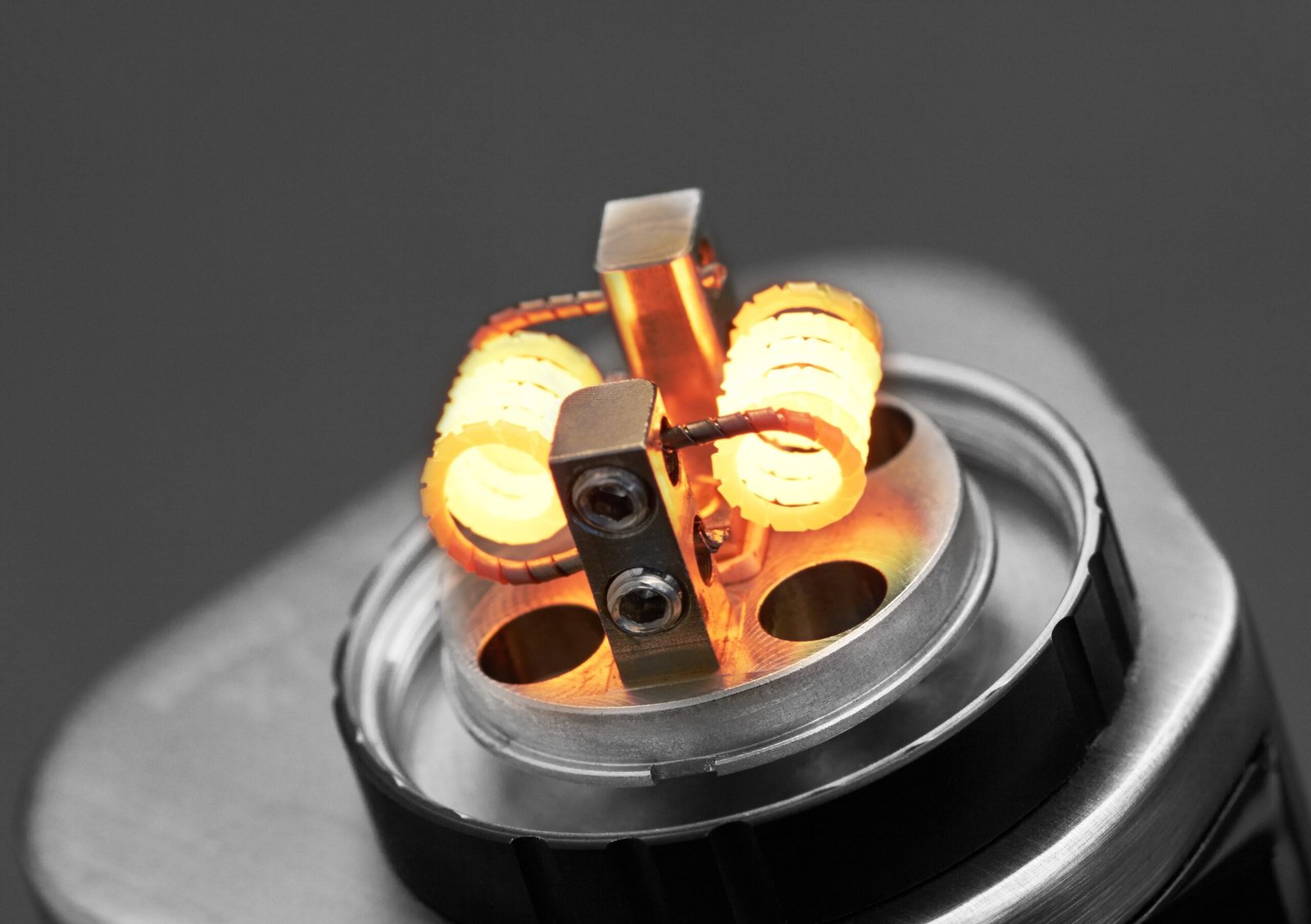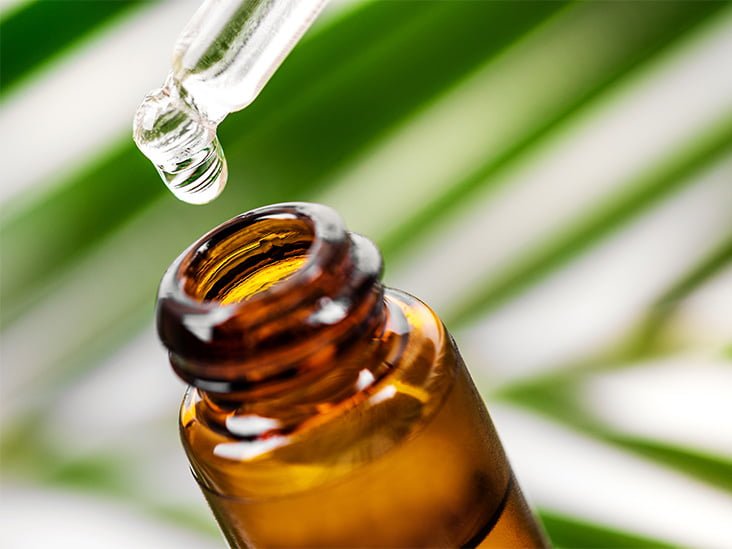
The short answer to this question is yes, but at 20-30 watts of power or 200 degrees Celcius/390 Fahrenheit*[1]*[2], which is lower than many operate on their default setting. Vape pens are generally designed to vaporize nicotine or sometimes THC so it requires a bit of adjustment to work for other cannabinoids. Operating at this nice and low power setting is important because if you overheat noids they produce toxic byproducts from combustion like cyanide and other carcinogens.*[3] In general you want to use the lowest temperature and wattage that will still evaporate your product as this will produce the minimum amount of burnt product and therefore the minimum amount of carcinogens from combustion. A setting as low as 10-15 watts will work for many noids*[4] though the majority will vaporize efficiently at between 20-30 watts of power.
Ok, so what the heck is a watt? A watt measures the amount of energy/power that your device is consuming.*[5] A variable wattage device will let you pick your desired wattage output and will automatically adjust the voltage to match this rate of power consumption.*[6]
Ok… so what the heck is a volt? A volt measures the amount of potential energy stored in your circuit, also known as the difference in charge between two points on a circuit..*[7] So basically
it’s the strength at which your device can operate. A variable voltage device lets you control how much power flows through your device, as opposed to how much power your device consumes/uses.*[8]
So is it as simple as knowing your voltage and wattage? On most devices, this is all you need to know, but for those wanting to understand the other specifications on their device, there are a
few more things to know. The most relevant to how hot your device gets is the Ohm, which measures the resistance to the flow of electricity in your device, and the mAH/milliamps which measures the rate that electrons flow through your device and tells you how long your battery will last in a given circuit.*[9]*[10]
The lower the Ohm the faster electrons flow through your device and the hotter your device will get, making it generate more heat and more vapours.*[11] For those wanting to get a bit more technical, or using homemade vape devices, these numbers can be calculated by Ohm’s law which tells you the relationship between these variables. Voltage equals the amps multiplied by the ohms. Ohms equals the voltage divided by the amps. Amps equal the Voltage divided by the Ohms.
So:
V= Amps X Ohms
Ohms= V / Amps
Amps= Voltage / Ohms
Ok, I understand how to calibrate my device now but I’ve heard that vape pens will clog up with gunk if I use them to vaporize cannabinoids?
Gunk in your vape pen is usually caused by overheating, so following the temperature and wattage guide above (20-30w or 200 degrees Celsius/390 Fahrenheit) should prevent your vape pen from getting covered in gunk. Using purer mixes of glycerin and noids also prevents other oils and flavouring agents, which might combust at lower temperatures, from getting burnt and sticking to your vape pen.
You should avoid mixing brands or flavours of e-juice so you’ll want to empty and clean your tank before adding new e-juice.*[12] Sweet flavours and dark juice flavourings, in particular,
have a reputation for causing a buildup of gunk on your vape’s coils.*[13] Ok, so how do I clean the tank out?
When it’s time to clean the tank you’ll want to vape it until it’s empty to make the cleaning process easier, if you have a variable wattage device lower the wattage to play it safe.*[14] when the tank is clean you can replace it with a different brand or flavour of e-liquid without getting bizarre flavours from mixed juices.*[15]
To clean a vape tank you take the tank apart and the coil out, keep all the components in a small bowl so you don’t lose them, and then give them each a rinse under warm water.*[16] Filling your cup/bowl with water and microwaving it for around 2 minutes helps get most of the gunk off. Give the tank another rinse after the microwaving and then dry it with a paper towel. If water proves insufficient propylene glycol does a more thorough job..*[17] Another step beyond this is to use a cleaning agent like baking soda, grain alcohol like vodka (not isopropyl alcohol), vinegar.*[18] If you use vinegar make sure to rinse extra thoroughly afterwards. You can also add a little bit of dish soap to help get rid of any remaining oils.*[19]
Ok, but how do I clean the coils? Coils are made out of a variety of materials, most common are Kanthal, Nichrome, Stainless Steel, Nickel and Titanium.*[20] Kanthal is the original type, Nichrome is an alternative and some believe it is more flavourful than Kanthal and heats up faster, it is also more prone to burning and melting than Kanthal.*[21] Stainless steel is considered the most versatile option and will work in both temperature control and power mode, unlike Kanthal or Nichrome.*[22] Nickel only works in temperature control, it has the quickest heat-up time and is known for its good flavour.*[23] Titanium is the most expensive and only works on temperature control mode, it is also flammable, its main benefit is that it contains no nickel for those with severe nickel allergies.*[24]
For cleaning your coils you’ll need to determine which type of coil head you have, replaceable or rebuildable. Replaceable coil heads are more difficult to clean and are almost impossible to get entirely clean, you just rinse them and wait for the water to completely evaporate, which takes some time.*[25] For rebuildable coils, it is much easier to clean them and helps them last longer. Remove the wick, if they’re not every dirty you can just run them by pulsing the fire button a couple of times to get the rest of the liquid off, then re-wick them when they’ve cooled off.*[26] If this is insufficient remove the wick, dry burn them lightly, remove the atomizer and rinse the coil under running water. You can use a toothbrush or coil cleaning tool to help brush off any residue. Finish with a final rinse and then dry burn them to remove the last of the water.*[27] Dishwashing liquid can also help remove any oils but be extra careful to rinse them thoroughly if you use dishwashing liquid.*[28]
Ok, what if I’m using a dab rig? If you’re manually heating with flames you’ll need to know the material your dab rig is made out of. If it’s steel, you’ll be looking for the first sign of colour change, as it becomes a faint straw/pale yellow colour. As it turns to a slightly darker tan or dark straw colour you’re approaching temperatures too high to use safely. Faint straw is about 200 degrees Celsius/390 Fahrenheit and brown is about 250, if you hit purple you’ve gotten up to 271 degrees Celsius and will be experiencing some combustion.*[29]
If it’s titanium you need it considerably cooler than when it first starts to change colours, titanium changes colour to a similar straw colour/pale yellow at around 290 degrees Celsius and
becomes yellow at about 340 degrees Celsius.*[30] This means you need to wait until your device cools down enough you can no longer see a colour change. For noids, it would be better to use a steel device for this reason.
I was unable to find a specific guide for glass and crystal but it appears it reaches a dull red colour at around 300 degrees Celsius.*[31] So glass or crystal would also require you to wait
until it is well below showing any colour if you’re using one of these dab rigs, similar to titanium. This once again makes it safer to use steel than other materials as it is a bit easier to gauge the temperature accurately and avoid burning your noids and inhaling a big lungful of dangerous carcinogens and other combustion products.
So overall an e-nail that has a customizable temperature rating would be a safer bet, especially if you’re using titanium or glass instead of steel. This will allow you to set your temperature and avoid combusting your noids, which improves the flavour as well as the safety profile. With a dab rig though, cleaning is a bit easier as you can heat it to a higher temperature when you’re done dabbing and burn off the leftover noids to be chipped off with your dab spoon when it cools down. Just make sure to do this in a well-ventilated area so you don’t have to breathe in the fumes from it burning the noids.
You could also use a pocket vaporizer which is designed for concentrates, I like the vapour genie and my girlfriend prefers the pax. There are dozens of other options out there and a quick
search will give you a guide for which vaporizers are the highest-ranked right now. Just make sure it’s a vaporizer designed for concentrates as dry herb vaporizers will require you to mix the
noids with herbal products which have varying effects and make dosing accurately more difficult. A volcano or other tabletop vaporizer with an adjustable temperature setting could also work but again has to be one set up to use concentrates which the volcano requires a specific attachment to do. Trying to vaporize it with the regular herb pad will make a big mess and might damage your expensive vaporizer.
So it’s quite possible to use a vape pen or vaporizer to vaporize your noids but you have to keep the specifics in mind. 200 Celcius/390 Fahrenheit temperature, which in a vape pen is about a
20-30 watt setting is what you’re looking for, and make sure you’re getting a high quality product without unknown additives.
TLDR version:
● 20-30 watts or 200C/390F to vaporize noids
● Finish/empty a tank prior to refilling
● Cleaning a tank:
○ Empty the tank/burn off all remaining e-juice
○ Take tank apart and the coil out, keep all components in a small bowl
○ Rinse all components under warm water
○ Put water in bowl and microwave for 2 minutes
○ Rinse components again
○ Dry components with a paper towel
● Cleaning a really dirty tank
○ Rinse/soak in propylene glycol, vodka or vinegar instead of water, or combine
water with dish soap, then rinse thoroughly
● Cleaning a coil head
○ Find out which type of coil you have, replaceable or rebuildable. Replaceable
ones are almost impossible to clean
■ If it’s a replaceable coil just rinse it and wait for it to evaporate dry
○ If it’s rebuildable, remove the wick
○ If it’s not very dirty just fire it up without the wick a few times to burn off remaining
material
○ If it’s very dirty remove wick, dry burn lightly, remove atomizer and rinse in
running water
○ Can use a toothbrush or coil cleaning tool to remove residue
○ Rinse and dry burn to evaporate off remaining water, can use dishwashing fluid
to help remove oils but be extra careful to rinse thoroughly clean.
● Dab rig guide
○ Steel is the correct temperature when it turns straw/pale yellow coloured
○ Titanium is the correct temperature below it’s first colour change so is harder to
guesstimate
○ Glass/crystal is the correct temperature below it’s first colour change so is also
difficult to guesstimate
○ E-nail with customizable temperature is the safest bet for using a dab rig
● Vaporizers
○ A pocket vaporizer or tabletop vaporizer with a temperature control setting and a
concentrate pad is also a good option
Matthew McLeod is a Métis-Canadian author writing about all things psychonaut and BDSM. He is also the author of a Canadian Hippy’s Guide to Cannabis. Matt has been researching altered states of consciousness for the past 15 years, writing on the subject full time for the last 5 years. The flames of his curiosity began while running a local BDSM group and encountered those entering subspace in the mid 2000s. His research expanded to include tryptamines and cannabinoids around 2015 when a firefighting related injury pushed him to explore alternatives to opioids for pain management and recovery from PTSD. Matt lives and works out of Vancouver Island, Canada and spends his weekends riding horses and running events for the local BDSM community.
More about the author can be found at:
https://mrkinktastic.wordpress.com
Reference:
[1] https://www.reddit.com/r/noids/comments/ifzqp4/best_vape_stylewattage/[2] https://www.reddit.com/r/noids/comments/ifzqp4/best_vape_stylewattage/
[3] https://www.reddit.com/r/noids/comments/ifzqp4/best_vape_stylewattage/
[4] https://www.reddit.com/r/noids/comments/ifzqp4/best_vape_stylewattage/
[5] https://www.ecigarettedirect.co.uk/ashtray-blog/2015/02/voltage-watts-ohms-vapers.html
[6] https://www.ecigarettedirect.co.uk/ashtray-blog/2015/02/voltage-watts-ohms-vapers.html
[7] https://www.ecigarettedirect.co.uk/ashtray-blog/2015/02/voltage-watts-ohms-vapers.html
[8] https://www.ecigarettedirect.co.uk/ashtray-blog/2015/02/voltage-watts-ohms-vapers.html
[9] https://www.ecigarettedirect.co.uk/ashtray-blog/2015/02/voltage-watts-ohms-vapers.html
[10] https://www.ecigarettedirect.co.uk/ashtray-blog/2015/02/voltage-watts-ohms-vapers.html
[11] https://www.ecigarettedirect.co.uk/ashtray-blog/2015/02/voltage-watts-ohms-vapers.html
[12] https://vaping360.com/learn/how-to-clean-maintain-your-vape/
[13] https://vaping360.com/learn/how-to-clean-maintain-your-vape/
[14] https://vaping360.com/learn/how-to-clean-maintain-your-vape/
[15] https://vaping360.com/learn/how-to-clean-maintain-your-vape/
[16] https://vaping360.com/learn/how-to-clean-maintain-your-vape/
[17] https://vaping360.com/learn/how-to-clean-maintain-your-vape/
[18] https://vaping360.com/learn/how-to-clean-maintain-your-vape/
[19] https://vaping360.com/learn/how-to-clean-maintain-your-vape/
[20] https://provape.com/blog/post/beginner%E2%80%99s-guide-part-iii-:-coils
[21] https://provape.com/blog/post/beginner%E2%80%99s-guide-part-iii-:-coils
[22] https://provape.com/blog/post/beginner%E2%80%99s-guide-part-iii-:-coils
[23] https://provape.com/blog/post/beginner%E2%80%99s-guide-part-iii-:-coils
[24] https://provape.com/blog/post/beginner%E2%80%99s-guide-part-iii-:-coils
[25] https://vaping360.com/learn/how-to-clean-maintain-your-vape/
[26] https://vaping360.com/learn/how-to-clean-maintain-your-vape/
[27] https://vaping360.com/learn/how-to-clean-maintain-your-vape/
[28] https://vaping360.com/learn/how-to-clean-maintain-your-vape/
[29] https://www.clarkeknives.co.uk/wp-content/uploads/2020/04/Steel-tempering-colours.jpg
[30] https://static.thefabricator.com/a/all-you-need-to-know-about-the-heat-affected-zone-1.jpg?size=
1000×1000
[31] https://i.pinimg.com/236x/78/94/fd/7894fdb1f7efd9001342e787b01d4ab3.jpg


